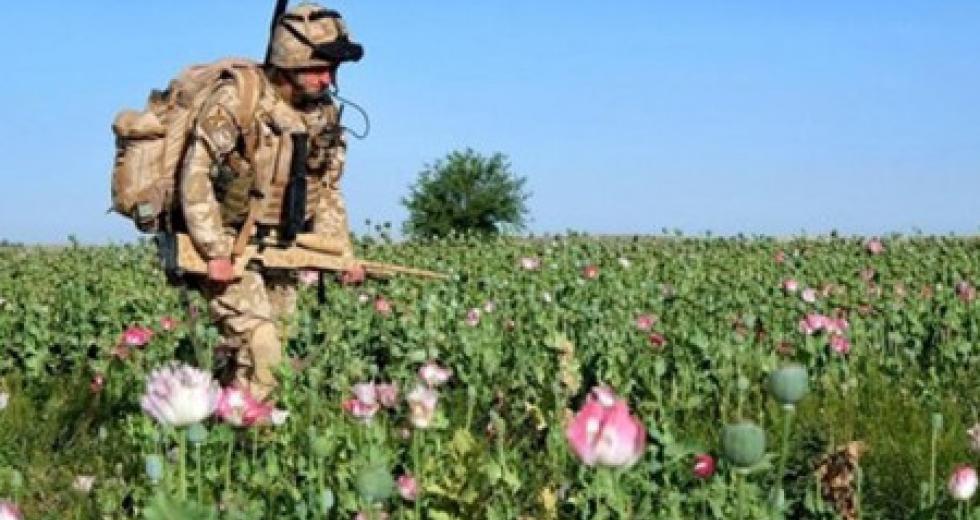
Tapsell asked, “are we to understand that the Right Honourable Gentleman’s bleak message to the country is that for many years to come, at Prime Minister’s Questions, he and his successors will be paying mournful tribute to the gallant men and women who in the previous week have been killed in Afghanistan, fighting an unwinnable, and deeply unpopular war, when it is widely understood that the Taliban are not international terrorists, who are now mostly … trained in Pakistan, Iraq and Britain.”
Brown responded, “Let me invite the Honourable Gentleman to join, eh, the Defence Secretary in a visit to Afghanistan, to see for himself. As a result of what has happened, the Taliban have been removed from power, 40 nations are contributing 50,000 troops, and as a result of what we have done, there were no girls in education in Afghanistan at all, now there are 2 million in education, and I would hope he will take up the invitation.”
The pause while he decided who he could palm this trip off to is quite telling.
Why Are They There?
Two and a half years later, British soldiers are still dying in Afghanistan. Why? Why were NATO troops deployed to Afghanistan? Was it to keep girls in education?
While Afghanistan was in the hands of the Taliban, Opium production dropped from 3,656 tonnes in 2000 to 74 tonnes in 2001. Once NATO troops moved in, opium production has skyrocketed far in excess of 2000 levels. Was this a coincidence? NATO claims that images of western troops running amok in the poppy fields would force farmers into the hands of the insurgents.
The Taliban regime which ran Afghanistan at the turn of the century was fundamentally anti-opium. Since the invasion by NATO troops, they have changed their position somewhat. There has been regime change within the Taliban itself, and the new bosses have no issue with using the opium trade to support their insurrection.


Unfortunately Britain's troops have been forced by Britain's politicians into the role of guardians of this production. Britain's troops were deployed to Helmand, and it was in Helmand that the real increase in opium production took place. In 2004-5, there were 72,000 acres of fields cultivating Opium. By 2008, that had risen to over a quarter of a million acres.
Wikileaked
In December last year, Wikileaks published a memo from the US Office of Drug Control Policy (ONDCP). The memo was written by John Walters in April 2007. He wrote:
(C/NOFORN) [confidential -- not to be seen by foreigners] ONDCP Director Walters met with COM ISAF [Commander International Security Assistance Force] General McNeill [an American] in Kabul, and separately with RC South Commander Major General Van Loon (Dutch) in Kandahar. McNeill told Walters there had been a lot of action on counter-narcotics, but little progress. HE WAS PARTICULARLY DISMAYED BY THE BRITISH EFFORT. THEY HAD MADE A MESS OF THINGS IN HELMAND, THEIR TACTICS WERE WRONG, AND THE DEAL THAT LONDON CUT ON MUSA QALA HAD FAILED. THAT AGREEMENT OPENED THE DOOR TO NARCO-TRAFFICKERS IN THAT AREA, AND NOW IT WAS IMPOSSIBLE TO TELL THE DIFFERENCE BETWEEN THE TRAFFICKERS AND THE INSURGENTS. The British could do a lot more, he said, and should, because they have the biggest stake.
The Musa Qala deal mentioned in the memo was an agreement with the Taliban that our troops should pull out of the key drug-trafficking centre of Musa Qala in Helmand. In return, the Taliban agreed not to attack International Security Assistance Force (ISAF) troops in the region. But the result was that the drug traffickers now had free reign to do as they wished. Insurgents eventually regained full control of the area.
In April last year, Afghan lawmaker Nasimeh Niazi announced that foreign forces are involved in narcotics production and trafficking, and that British troops had trained a number of experts for opium cultivation. "As long as foreign forces are present in Afghanistan, the cultivation, production and trafficking of drugs will continue in the country," she said, adding that heroin-production labs in Helmand, which did not exist before, are now plentiful and work openly.
In an interview with the Australian magazine Profil on the 27th January, 2009, Antonio Maria Costa, who was until recently the executive director of the United Nations Office on Drugs and Crime (UNODC) said: "In many cases, drug money is currently the only liquid investment capital to buy real estate, for example. In the second half of 2008, liquidity was the biggest problem the banking system had, and, therefore, this liquid capital [of drug flows] became an important factor."
He reinforces this statement on the UNODC website: "with the banking crisis choking lending, these cash-rich criminal groups have emerged as the only sources of credit."
In reality, the "war on terror" is the third Opium War. Just as the British East India Company as representatives of the City of London ran the opium trade during the late 18th and 19th centuries, City of London sponsored criminals are running the drug operations today, this time laundering the money through the Middle East, for example Dubai and Saudi Arabia, as well as offshore financial centres like the Cayman Islands. This money become key to avoiding total collapse of the monetary financial system over the last three years. This is the war that British troops are fighting and dying for. And all the while they are out of the country, it is being destroyed from within by a quisling gang.

